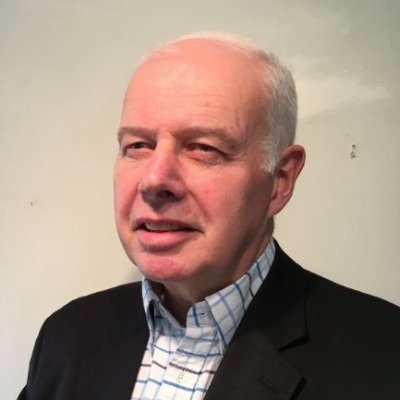What are the latest technology and industry trends that are shaping the world of power electronics? That’s what Rahul Chopra and Sneha Ambastha hoped to figure out by meeting Andy Gales, VP, Vicor—a global veteran of power electronics, who’s quite familiar with India and its engineering prowess, and has a passion for educating engineers on design of power electronics. They also conducted a survey to find the overall challenge and the trend. Here are some excerpts…
Q. What are the broad trends shaping products that you see in power electronics?

A. Miniaturisation is a major goal within the power electronics industry. Reducing size is always beneficial and even expected in electronics components.
Driving up the efficiency of both AC and DC systems, making systems more green, is also an important objectives for engineers. One of our big customers is in the data centre market where they don’t really care about the size but they do care a lot about the efficiency. If you are buying a megawatt of electricity even half a percent of efficiency is a big deal as it saves money on power bills and on air-conditioning as well.
Vicor has developed some innovative switching topologies like Sine Amplitude Conversion to help customers achieve their efficiency goals. Indeed, we spend a lot of time trying to improve the efficiency of all our products. For example one recently launched product, a bus converter module for high voltage DC applications, can provide a 48V, 24V or 12V output at up to 1.75kW from a 380V DC bus, at efficiencies of up to 98% in a package of just 61mm by 25mm by 7.2mm. All these products are manufactured in the USA.
Q. Any new trends that you have seen in India?
A. Indian engineers are very knowledgeable about power. They are also very broad minded and they react quickly if they see an advantage in doing things a different way. It sometimes takes a bit longer in other countries to see adoption of new ideas. We enjoy working with Indian engineers, to help them optimise their solutions. I have been working in the Indian market for several years and find engineers interested in understanding the latest technologies available to help them design solutions more quickly.
[stextbox id=”info”]“India Engineers are most interested in new technologies that enable them to quickly differentiate their solutions”[/stextbox]
Q. What are the technological advancements in Defence lately?
A. There is a big push in the Defence industry to reduce the size, weight and improve the performance of all types of systems. And this, of course, includes power supplies. Our latest DCM in a VIA package DC-DC Converter family, for example, increases the power density over our previous solutions by a factor of two. They also reduce weight by 50% and reduce waste heat by 45% due to efficiency gains. Performance is very important for a wide variety of defence applications. For example, if you are building a UAV, low weight is critical to maximize payload. Also, improved efficiency has a direct impact on how far and how long it can fly. The Defence market constantly struggles with size, weight, power and cost (SWaP-C) demands and Vicor’s component approach enables flexibility in optimizing for this criterion.
[stextbox id=”info”]“There is a move in the Defence industry to reduce size, weight and to improve the performance of products.”[/stextbox]
Q. What is happening in India with respect to R&D?
A. Our R&D is conducting almost exclusively from our locations just outside of Boston, USA. We have our applications engineering team in India talking to the factory every day providing feedback on what Indian customers need.
Q. The survey also indicated that there is a shortage of experienced engineers or resources in power electronics. What’s your take on that?
A. In the Western world, the population of power supply engineers is aging. This is not as much a problem in India as it is in other countries like USA and Europe. Today, analogue engineers are becoming a scarce resource; more people want to become digital engineers or are focusing on software development.






